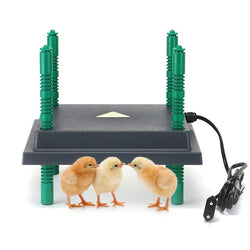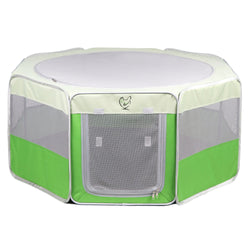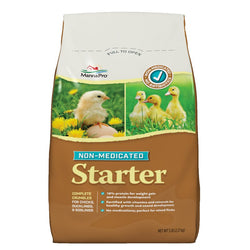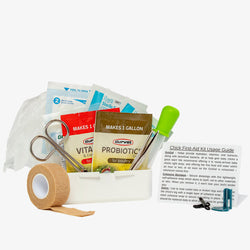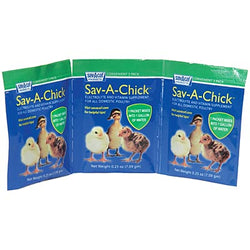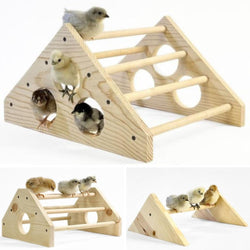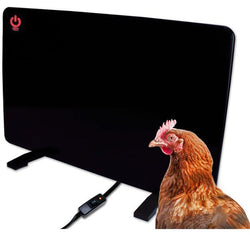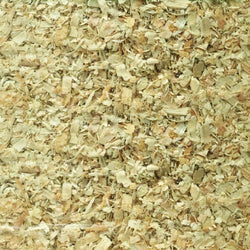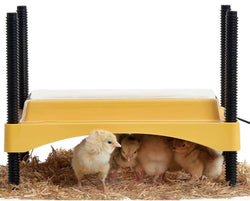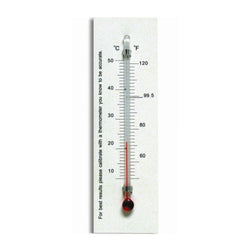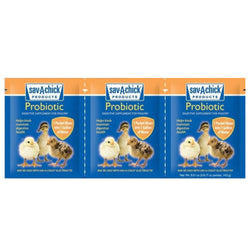Should I give my hens vegetarian feed?
Back to blog
Should I give my hens vegetarian feed? |You have probably seen labels on grocery store eggs claiming they have been laid by "vegetarian-fed hens," so is this something you should be looking for with regard to your own hens' feed?
Well... yes. And no. Sort of. But not really. Got it? No? Well, let me explain.
NO, you don't want to restrict your chickens to vegetarian food in that chickens are omnivores. They eat mice, frogs, snakes, lizards, grasshoppers... basically any creature small enough to swallow, and occasionally some creatures just small enough to kill and eat in pieces, like baby rabbits or large toads.
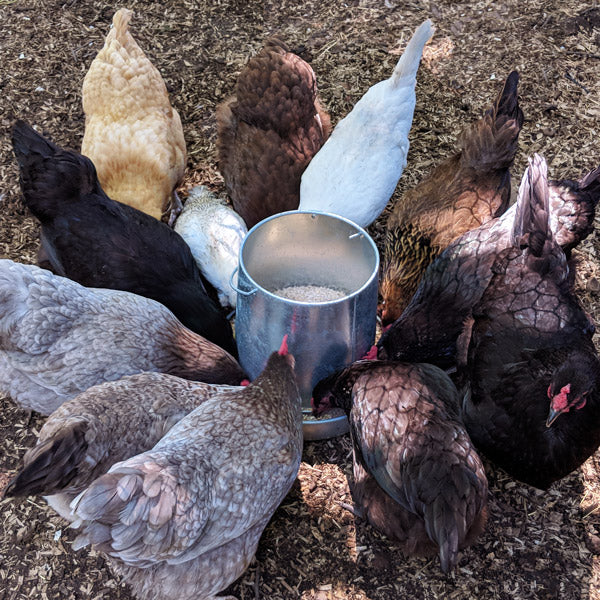
But YES you may want vegetarian feed in that vit typically omits proteins you may not want to offer your flock. For instance, while chickens may, unfortunately, try to eat each other from time to time (if they're too crowded, particularly), we think putting ground chicken in chicken feed just doesn't seem like the best of ideas. Plus, even if that doesn't bother you, the origin of the protein in feed is usually from "animal by-products." In other words, the feed contains parts of animals we don't normally eat, and that doesn't always have the most nutritional value: hooves, lips, feathers, and elbows, as my grandma used to say.
And chickens typically prefer grasshoppers to hooves and fish heads.
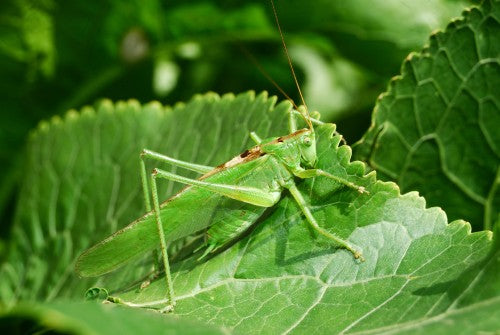
When you see "vegetarian-fed hens" on an egg label in grocery stores, it more or less means the chickens are being restricted from their natural diet, which would in normal circumstance includes being able to forage on pasture bugs, grubs and so on. But buying vegetarian feed for your own backyard hens who do have access to forage--or for whom you provide special treats of mealworms and the occasional leftover meatball--can be a good thing. In fact, eggs laid by hens with access to pasture are far more nutritious than grocery store eggs laid by "vegetarian-fed hens." (For details, see the related questions below.)
So... for the BEST diet for your flock, make sure any non-vegetarian feed contains high-quality proteins, rather than by-products. Otherwise, simply stick to commercial vegetarian feed while offering your flock access to pasture and treats containing mealworms or insect larvae.
Well... yes. And no. Sort of. But not really. Got it? No? Well, let me explain.
NO, you don't want to restrict your chickens to vegetarian food in that chickens are omnivores. They eat mice, frogs, snakes, lizards, grasshoppers... basically any creature small enough to swallow, and occasionally some creatures just small enough to kill and eat in pieces, like baby rabbits or large toads.

But YES you may want vegetarian feed in that vit typically omits proteins you may not want to offer your flock. For instance, while chickens may, unfortunately, try to eat each other from time to time (if they're too crowded, particularly), we think putting ground chicken in chicken feed just doesn't seem like the best of ideas. Plus, even if that doesn't bother you, the origin of the protein in feed is usually from "animal by-products." In other words, the feed contains parts of animals we don't normally eat, and that doesn't always have the most nutritional value: hooves, lips, feathers, and elbows, as my grandma used to say.
And chickens typically prefer grasshoppers to hooves and fish heads.

When you see "vegetarian-fed hens" on an egg label in grocery stores, it more or less means the chickens are being restricted from their natural diet, which would in normal circumstance includes being able to forage on pasture bugs, grubs and so on. But buying vegetarian feed for your own backyard hens who do have access to forage--or for whom you provide special treats of mealworms and the occasional leftover meatball--can be a good thing. In fact, eggs laid by hens with access to pasture are far more nutritious than grocery store eggs laid by "vegetarian-fed hens." (For details, see the related questions below.)
So... for the BEST diet for your flock, make sure any non-vegetarian feed contains high-quality proteins, rather than by-products. Otherwise, simply stick to commercial vegetarian feed while offering your flock access to pasture and treats containing mealworms or insect larvae.
